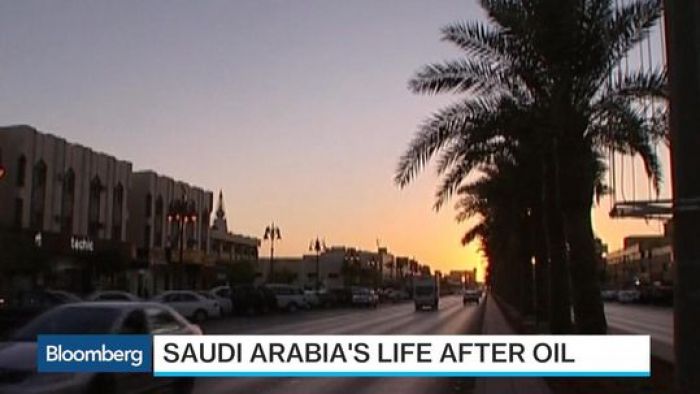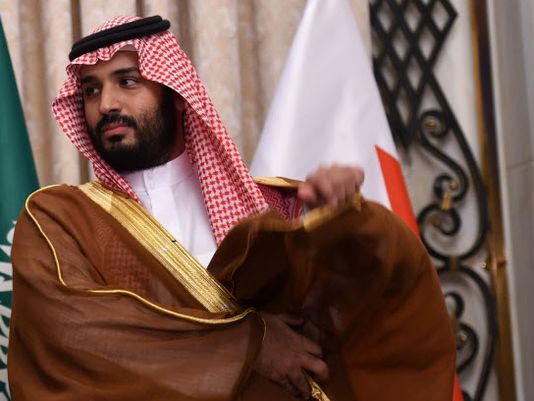Saudi Arabia reveals post-oil vision

Saudi Arabia's Deputy Crown Prince Mohamed bin Salman's vision for the future of the nation is to be unveiled today, setting the path forward for the kingdom to reduce its reliance on crude exports. Bloomberg

Saudi Defence Minister and Deputy Crown Prince, Mohammed bin Salman, is pictured, right, beside U.S. Secretary of Defense Ashland Carter, left, during during the Gulf Cooperation Council (GCC) Defence Ministrial summit in Riyadh, on April 20, 2016. He said he plans to introduce a strategic, 15-year economic plan for the Kingdom of Saudi Arabia Monday.(Photo: Fayez Nureldine/AFP/Getty Images)
Saudi Arabian officials on Monday laid out a sweeping plan to transform the kingdom from its heavy reliance on oil to a more diverse economy.
King Salman announced on television that the country’s cabinet approved the blueprint, called “Vision 2030,” which is aimed at creating more jobs and stimulating foreign investment. He urged Saudis to work together toward its success.
The king’s 30-year-old son, Deputy Crown Prince Mohammed bin Salman, expanded on the plan in a prerecorded interview aired shortly after his father’s appearance on Al-Arabiya, a Saudi owned network. Saudi stocks have been vulnerable to the whims of crude oil prices, which fell this year to their lowest levels in a decade. The prince, who is second in line to the throne, leads the Council for Economic and Development Affairs, which oversees the country's finance, oil and economic agencies.
The prince said the reforms are aimed at addressing housing and unemployment problems and ensuring that water and energy subsidies go to those most in need. He has said he would release details on the budget and economic policies in six weeks in the form of his National Transformation Plan.
The long-term plan involves changes to the kingdom's oil company, Saudi Aramco, to revamp it into an energy and industrial conglomerate—in line with the prince's goal of raising non-oil revenue by $100 billion by 2020, Bloomberg reported. Saying the country has become addicted to oil, he described plans to sell a small portion, less than 5%, of the parent company in an initial public offering.
“The vision is a roadmap of our development and economic goals,” he said. “A part of that is related to Aramco and this is a very small aspect.”
The prince also sketched plans to set up a $2 trillion sovereign wealth fund that will be managed by a board of directors, and not Aramco. Its revenues would help develop the kingdom's cities, he said.
Among other proposals to boost non-oil revenue, the prince said the country can invest more in mineral mining and expand the kingdom’s military production. Saudi Arabia was the world’s third-largest arms buyer last year, with purchases topping $87 billion. And he said the kingdom, which hosts millions of Muslim visitors to the holy cities of Mecca and Medina each year, would be more hospitable to other types of tourists. A new residency visa program could generate additional revenue and allow Muslims and Arabs to live for extended periods in the country, he said.
The prince's reform effort is not the first designed to remake Saudi Arabia's economy, Reuters reported. Previous reforms in recent decades have yielded modest results at best. But the prince's proposal might be the boldest since the founding of the kingdom.
Contributing: Associated Press
Read or Share this story: http://usat.ly/1SsNQs6









